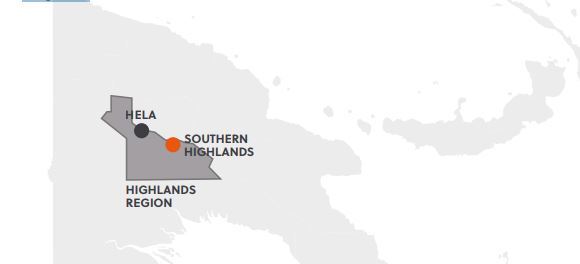Caught in the Firing Line: Foreign Firms and Local Politics in Papua New Guinea
In June 2018, members of a landowners’ association sabotaged equipment owned by a US-based energy firm in the Hela Province. The protesters also threatened to blow up a nearby liquefied natural gas processing facility and erected road blockades, preventing access to a gas pipeline construction project. This targeted unrest prompted the US firm to evacuate all non-essential personnel from the site. Unpaid royalties from commercial operations on tribally-owned land was the primary driving force behind the incident; although, the government’s decision to award PGK 35 million (approximately USD 10.6 million) in security contracts to residents of a neighbouring area also contributed to local grievances. Yet, despite the dispute involving local players and the central government, the June unrest serves as the latest example of how threats to foreign assets can be leveraged to gain concessions in the conflicts between local interest groups and the central authorities. As anti-government sentiment, largely stemming from allegations of corruption and inefficiency, persists in the country, further such campaigns remain highly likely.
The situation in Hela worsened in July after Angore Tiddl Appa Landowners Association (ATLA) representatives met with government officials in the capital, Port Moresby. The ATLA demanded financial concessions from the government, Foreign Firms and Local Politics in Papua New Guinea including the establishment of a PGK 32 million (USD 9.7 million) infrastructure development grant, and that landowners receive two percent of total revenue in monthly royalties. However, government negotiators made a counter-offer of PGK 20 million (USD 6.1 million). The group responded to these demands by threatening to “blow up” a natural gas processing plant and force the permanent cessation of extractive operations in the region, a direct threat to commercial operations. Tensions have decreased significantly since these threats were issued, indicating that the group was able to negotiate a behind-the-scenes agreement with the government. Although ATLA has maintained it had nothing agaisnt the US company affected by the unrest, saying their argument was with the government which manages royalty payments to landowner groups, the impact on the foreign firm is clear.
The group responded to these demands by threatening to “blow up” a natural gas processing plant and force the permanent cessation of extractive operations in the region.
The central government in Papua New Guinea remains highly reliant on foreign investments to bolster state coffers. Investments in the energy sector, in particular, are Papua New Guinea’s largest source of revenue. With local manufacturing only accounting for nine percent of GDP, and 80 percent of the population living as untaxable subsistence farmers, the government needs foreign investment to keep the economy afloat. The inflated importance of foreign firms operating in the country makes foreign-owned assets a convenient proxy for diverse interest groups, including landowners’ associations and other groups with political grievances, to pressure the central government to heed to their demands.
Although the standoff in Hela has seemingly been resolved, the increasingly complex mix of local interest groups in Papua New Guinea makes navigating often conflicting agendas cumbersome. Political tensions remain elevated throughout the wider Highlands Region and there have been several recent cases of volatile disputes between local players and the central authorities that present a likely threat to commercial operations. Anti-government riots in Mendi, the capital of Southern Highlands Province, which preceded the Angore incident in June this year, are a case in point. The riots were prompted by a National Court ruling upholding the controversial re-election of the incumbent provincial governor, William Powi, despite long-standing allegations of corruption. Supporters of opposition candidate, Joseph Kobol, rampaged through Mendi, setting fire to a commercial aircraft at the local airport as well as numerous government buildings, including the governor’s official residence. While no casualties were reported, the rioters were heavily armed with assault rifles and machetes and local law enforcement was “out-gunned” and unable to respond effectively. The central government, under Prime Minister Peter O’Neill, declared a nine-month state of emergency in response to the riots and deployed over 550 additional security forces to the region. Reportedly fearing a crackdown, hundreds of Kobol supporters and other Mendi residents fled to neighbouring provinces. As part of ongoing investigations, at least 13 suspects were arrested in August 2018, and further arrests are expected as investigations into the riots continue.

Looking ahead, deep political divisions will persist in the Highlands Region. The fact that the June riots were prompted by a National Court ruling is indicative of widespread distrust of state institutions. In addition to corruption, localised conflicts between the country’s over 800 linguistic groups, locally known as “wontoks” (one talk), as well as endemic tribal conflict, which is especially prevalent in the Highlands Region, exacerbate these tensions. Yet, the July incident, in particular, highlights the fact that these players are acutely aware of the importance of foreign investment for the central government. To this end, while the Angore standoff has been resolved, and Kobol’s supporters have stopped rioting in Mendi, foreign firms remain the likely proxy targets of anticipated future community campaigns against the central government.